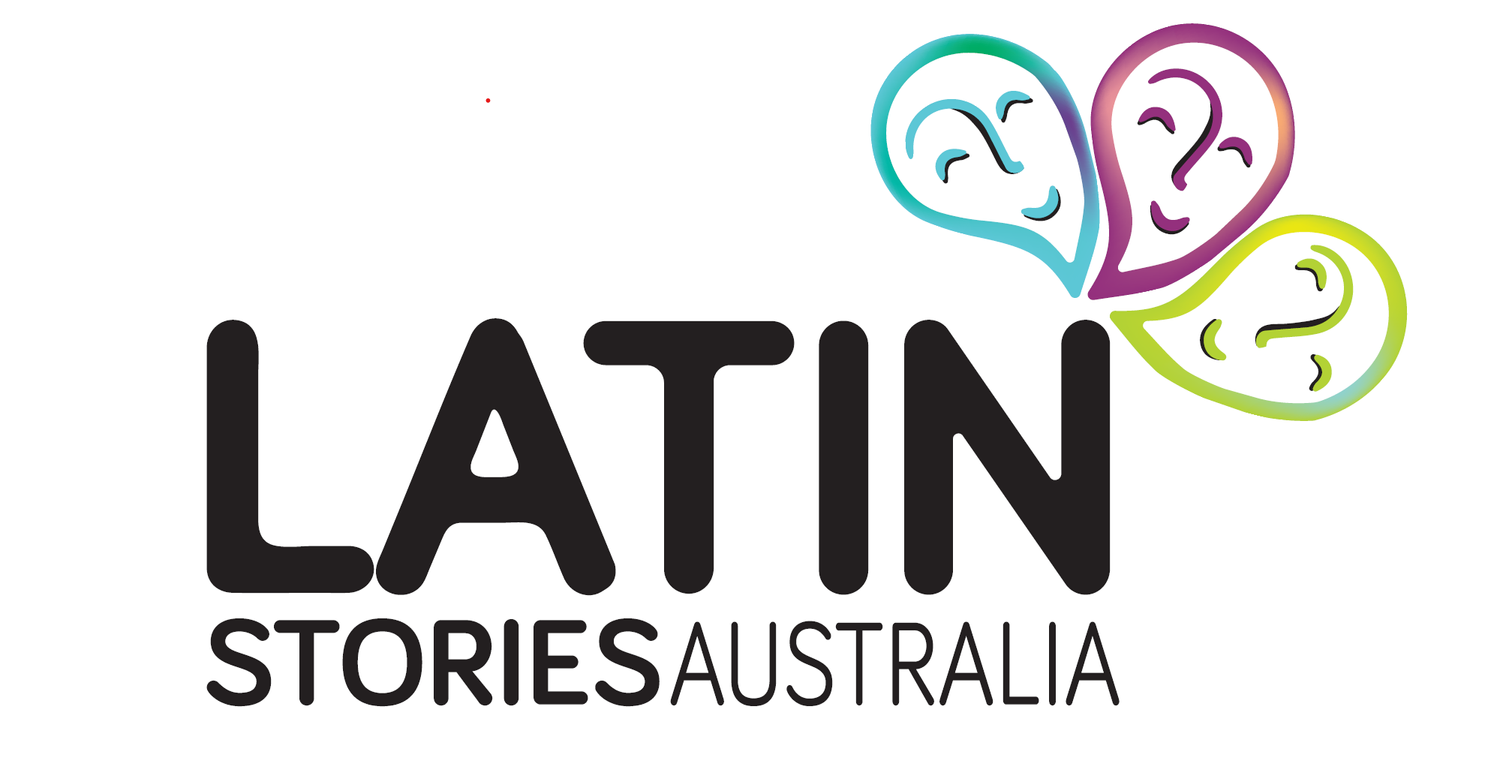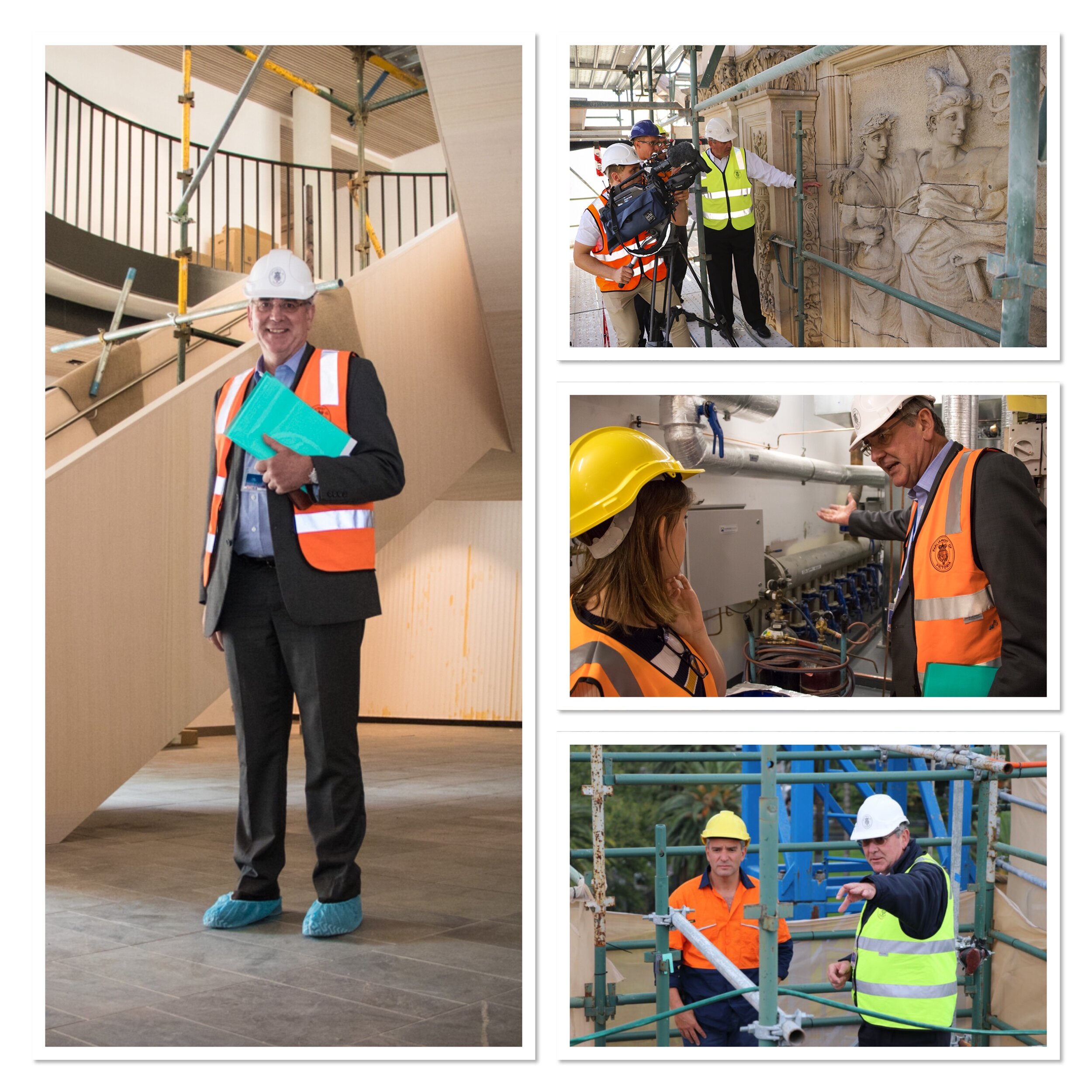Peter Lochert
“REACH OUT, THERE IS ALWAYS SOMEONE WILLING TO HELP”
Peter Lochert
Country of Origin: Chile
Occupation: Secretary, Department of Parliamentary Services, Parliament of Victoria. State of Residency: VIC. Favourite place in Australia: Yarra Flats Park with my horses. Biggest surprise when arriving to Australia: Pedestrian crossings - that cars would stop for me to cross the road and how old and dilapidated the trains were (red rattlers).
This story is part of “Nuestras Voces”
By Cristina Abela
Peter is the Secretary of the Department of Parliamentary Services at the Victorian Parliament. He is responsible for all of Parliament’s corporate functions outside of the House Chambers and Parliamentary Committees. Important contributions to Victoria include his roles in the transition from TAFE to VET (Vocational Education and Training) and establishing the Department of Parliamentary Services. He has also led the heritage restoration and upgrading of Parliament House, arguably the most significant heritage building in the state.
TELL US YOUR STORY
My parents arrived in Chile from Austria as refugees in the late 1940’s. They built a successful life but saw the election of Allende in 1970 as a threat to their family safety and future in Chile. So, the family (my parents and sisters Matilde and Cristina) headed to Australia where one of my aunts lived, arriving on the 6 June 1971. I was 17 at the time and spoke no English. Since we had no resources, we all started working in factories and learning English after hours. I worked at a glue factory, a mental health institution, as cleaner, at construction sites in the Pacific and in the mines in Western Australia (WA). I eventually returned to study when my English was proficient enough.
In the early 80’s, I worked with CELAS helping Spanish speakers to settle in Melbourne. We established training for bilingual teacher aides, aged care workers, youth workers, and helped with recognition of qualifications empowering older migrants and refugees. Our best partners at the time were TAFE Colleges which led me to look for a job in the TAFE Board.
Parliament House renovations
I started as a Project Officer in 1985 and by 1996 had progressed to be Victorian TAFE Chief Information Officer and the executive responsible for the Victorian TAFE budget process and College performance management. In that period, Hawke and Keating led national economic reform including a vocational training skills agenda. I was landed with the job of developing new funding models for TAFE and helping create the transition from TAFE to VET (Vocational Education and Training). These models were eventually taken up by ANTA nationally. I’m known for my work in developing planning and resource allocation frameworks, college mergers, and management systems. I spent the early 90’s travelling around Australia working with VET partners nationally to implement performance contracts, resource data models and financial management standards. Many of these are still used today.
In 1996 I moved to Swinburne University as Deputy Director and later Executive Director in TAFE. In those roles I worked on the merger with Eastern TAFE, the establishment of NICA, developing TAFE to Higher Education learning pathways and on promoting vocational education and training in Latin America.
In 2004, I started working at the Parliament for a six-week consulting assignment to help establish the Department of Parliamentary Services. I was quickly captured by the institution, its heritage and history, its core values and what it can contribute to representative democracy. Developing an effective, contemporary administration and support capability for the Parliament and its members, restoring Parliament House, and strengthening the institution became a passion. For the last 10 years I have been the Secretary of the Department reporting to the Presiding Officers of both Houses of Parliament. The project I am currently working on is the heritage restoration and upgrading of Parliament House. I have been very lucky to work with teams of brilliant and passionate people to ensure Parliament house continues to be a place of which Victorians feel proud of.
My role forging links with Latin America was recently recognised with the creation of a scholarship to help vocational student exchanges to Latin America. Rafaela Lopez and I shared the honor of naming it the Lopez-Lochert Scholarship.
CHALLENGES
Language – When I arrived I did not speak English. We took the dictionary to the grocery shop to decide what to buy. I would always take a big note $20 to make sure I had enough as I didn’t understand the cashier. One day I felt confident enough to buy cheese at the milk bar. I had practiced what to say and what I would say in response. When I was there, I have no idea what the person said so I just pointed to cheese. I walked back home with a whole wheel of cheese. Mom said “What is this?” I said “Don’t ask”. Years later I returned to that milk bar and the lady said “Ah, I remember you, you are from that family of migrants that I don’t know where they are from, but boy they love cheese!! “
Culture – I only had two friends at the mines in WA who were also from a migrant background. They invited me to go to the pub where I got a wine and they ordered beers. After some minutes another wine appeared next to my drink, and in less than 10 minutes another wine appeared again. Someone said, “Are you shouting a beer?”. I was so confused. Why do you have to shout? Just drink it! Once they explained that “shouting a beer” means “paying for a beer”, I went to the bar and shouted a round of drinks.
Stereotypes – Since Chile, I have been stereotyped by my look which is not the “typical” one. I’m very tall and my skin is lighter that the “normal” Latin American skin. In Chile I was a “Gringo”, and here I was a “Wog.”
Happy snaps with his wife and kids.
CONTRASTS
Way of life - Compared to Chile in the late 60’s and early 70’s, Australia was stiff and dispassionate (my parents said: quiet and calm!). Australians were laid back, showed little emotion or engagement in politics or social issues. Things have changed a lot in societies everywhere.
Social structures - Where Chile was formal, particularly to elders or hierarchical superiors, here everyone went by first name. I have to say, I quite like that, and I actually enjoy meeting all of my staff and their teams personally.
Building relationships - The best cultural asset was coming from a high context culture where we communicate in ways that are implicit and rely heavily on context. Latinos are relationship builders. The first part of the interaction is always to learn about each other. This was very useful and a strong relationship started and a door opener.
PIECE OF ADVICE
Create your luck - Australia is a land of opportunity: don’t ever waste one! But rely on your efforts to create your luck.
Be the best you can be - In anything you do: cleaner, factory worker, taxi driver, brain surgeon or lawyer just try to be the best you can be.
Reach out - There is always someone willing to help. Latins come from a high context culture – relationships are our thing. Don’t do it alone. But then don’t wallow in self pity either.
Victorian Architecture Medal Award from the Australian Institute of Architects.
IN THE NEXT FEW YEARS…
Peter sees himself leading the final stages of the current heritage renovations at Parliament house. He would also like to trace back his own family’s migrant history. He hopes to continue spending time with his horses, keen to continue getting his hands dirty playing farmer, and involved in sport club committees.




